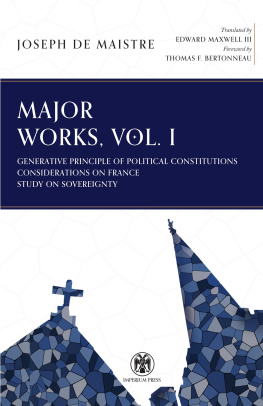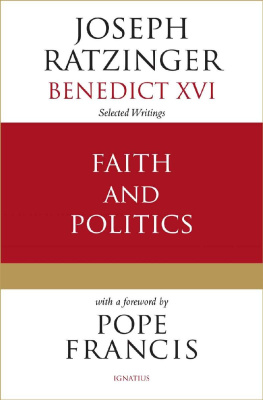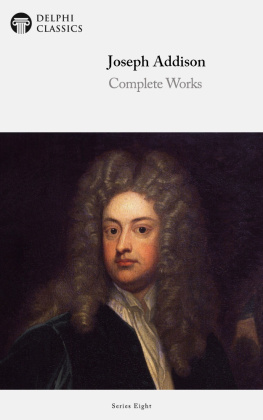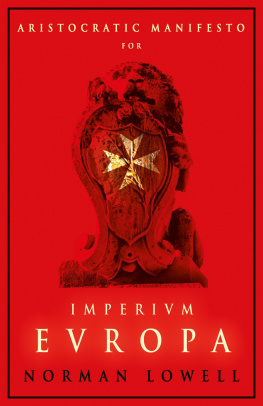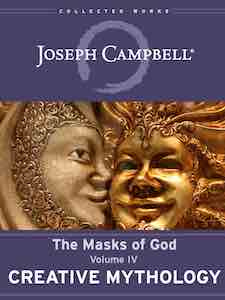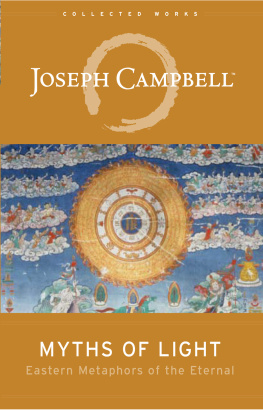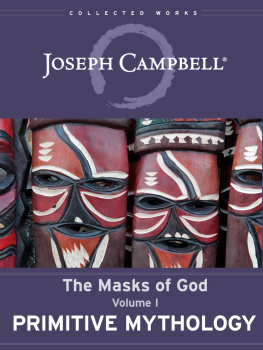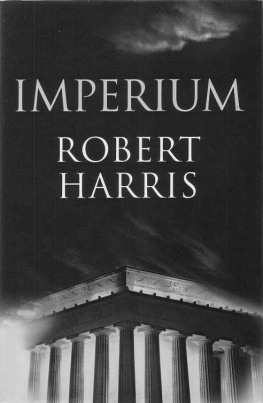Joseph de Maistre - Major Works, Volume I - Imperium Press
Here you can read online Joseph de Maistre - Major Works, Volume I - Imperium Press full text of the book (entire story) in english for free. Download pdf and epub, get meaning, cover and reviews about this ebook. year: 2021, publisher: Imperium Press, genre: Science. Description of the work, (preface) as well as reviews are available. Best literature library LitArk.com created for fans of good reading and offers a wide selection of genres:
Romance novel
Science fiction
Adventure
Detective
Science
History
Home and family
Prose
Art
Politics
Computer
Non-fiction
Religion
Business
Children
Humor
Choose a favorite category and find really read worthwhile books. Enjoy immersion in the world of imagination, feel the emotions of the characters or learn something new for yourself, make an fascinating discovery.
- Book:Major Works, Volume I - Imperium Press
- Author:
- Publisher:Imperium Press
- Genre:
- Year:2021
- Rating:4 / 5
- Favourites:Add to favourites
- Your mark:
- 80
- 1
- 2
- 3
- 4
- 5
Major Works, Volume I - Imperium Press: summary, description and annotation
We offer to read an annotation, description, summary or preface (depends on what the author of the book "Major Works, Volume I - Imperium Press" wrote himself). If you haven't found the necessary information about the book — write in the comments, we will try to find it.
Major Works, Volume I - Imperium Press — read online for free the complete book (whole text) full work
Below is the text of the book, divided by pages. System saving the place of the last page read, allows you to conveniently read the book "Major Works, Volume I - Imperium Press" online for free, without having to search again every time where you left off. Put a bookmark, and you can go to the page where you finished reading at any time.
Font size:
Interval:
Bookmark:
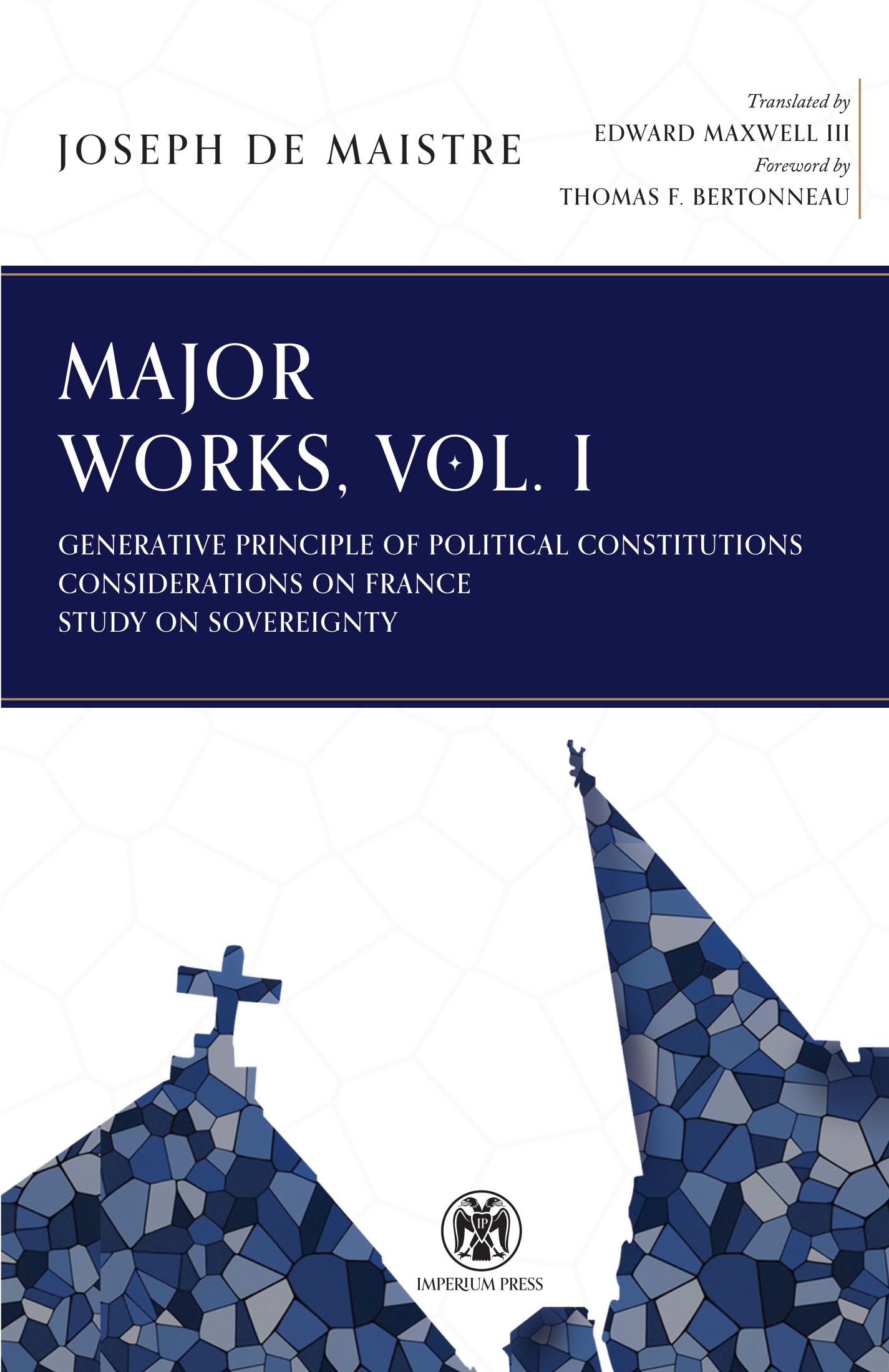

Imperium Press was founded in 2018 to supply students and laymen with works in the history of rightist thought. If these works are available at all in modern editions, they are rarely ever available in editions that place them where they belong: outside the liberal weltanschauung. Imperium Press mission is to provide right thinkers with authoritative editions of the works that make up their own canon. These editions include introductions and commentary which place these canonical works squarely within the context of tradition, reaction, and counter-Enlightenment thoughtthe only context in which they can be properly understood.
Joseph de Maistre was one of the strongest voices in 18th and 19th century reaction. Born into minor Savoyard nobility in 1753, he enjoyed a distinguished law career until he fled the French Republics annexation, whereupon he acted as chief magistrate to Charles-Emmanuels Sardinian court, later attaining a number of high offices. Maistre distinguished himself as a political commentator in Considerations on France , publishing many works over his life to great acclaim, particularly the posthumous St. Petersburg Dialogues .


Contents
Book I: Origins of Sovereignty
Book II: The Nature of Sovereignty in General
The Cosmic Cachinnations
of Joseph de Maistre:
Founder of Reaction
In his essay on Historical Fact (1932), the refined but somewhat dour Paul Valry makes passing reference to the Chambry-born aristocrat, Savoyard jurist, Sardinian diplomatic envoy to the Czar, and arch-critic of the Revolution in France, Joseph de Maistre (17531821), who figures as the subject of these paragraphs. Valry describes Maistres style as partaking of a noble, pure, and gentle severity (124), while bracketing him with such other and later Francophone writer-thinkers as Jules Michelet, Hippolyte Taine, and Alexis de Tocqueville. Valry himself, in his writerly genealogy, stood, somewhat at an angle perhaps, in the line of Maistre, whose tutelary influence over the young Charles Baudelaire gave rise to the High Symbolist phase of French poetryValry being a third generation Symbolist in his tantalizingly ambiguous verse. Valrys dictional choice of severity nominates itself as appropriate to its object and so, too, the adjectival noble and its companion, pure. In Valrys gentle, however, a question arises, and this despite the fact that in French gentille (as in, une gentille svrit ) need not denote the quiet, forgiving character that its English cognate suggests, but rather a quality of high-born reserve. Is Maistre reserved? Hardly: Maistre discovers his forte in the counterattack. Where Monsieur Voltaire launches his barrage of contempt against religion, Maistre fires off his mighty counter-battery, so as to leave the obnoxious contemnor, as though he still lived, in a state of shell-shocked indignity. Where John Locke makes insipid claims about human understanding, Maistre demonstrates that insipidity, point by point relentlessly, until of Lockes case nothing remains except a few ignoble tatters. Where Jean-Jacques Rousseau gushes and foments against the established order Maistre like Zeus thunders back, pointing out the topsy-turvy character of Rousseaus bad logic, to leave standing only the mans egotism and sentimentality. In a cavalry-metaphor, Maistre qualifies himself as a veritable Blcher of polemic.
Compare Maistre, for example, with his contemporary and peer Ren de Chateaubriand. In his masterly Genius of Christianity (1802), Chateaubriand on the one hand insistently, but in a manner authentically gentle, presses his case for the centrality of the Catholic religion to European civilization. The presentation never strays from politeness and advances itself in a carefully reasoned way. Maistres great posthumous publication The St. Petersburg Dialogues or Conversations on the Temporal Government of Providence (1821), on the other hand, while complementing Chateaubriands Genius in its content, employs a style, typical of its author, quite different from Chateaubriands. Maistre, who acknowledges every nuance of courtesy, nevertheless readies himself at every moment to set loose his Olympian indignation; couching himself always, however, in a mood of ebullient and godlike humor he meanwhile articulates his thesis in the rhetoric of ironically self-aware hyperbole. In his ironical self-awareness Maistre indeed ranks with the author of the Quixote, Part II, or with Gustave Flaubert. In his exposition, Maistre shows himself a great role-player. He pretends to be flabbergasted that bad arguments have so great a currency and he delights in revealing their sources as so many faux monnayeurs. For Maistre, the game is always afoot, and the hunter is always ready to spring. He is the hunter, sure of his shot. Maistre, conceiver of the subtle, not the gross, counter-revolution and sublime founder of the reactionary right, wielded his pen as a cosmic satirist of the most exalted office and as he might have wielded a sword.
Isaiah Berlin remarks in an introduction to an American edition of Considerations on France (1797) that Maistre belonged to Romanticism, especially in his view of history. Maistre, Berlin writes, like other romantic writers, took the panoramic rather than the particular view of history, seeking, not to describe and relate the unique event, but to find behind the sweep of history some logic, some divine pattern, that would satisfy the selfsame urge for design and order so strongly felt by Enlightenment thinkers (39). Berlins description would make of Maistre a precursor to Twentieth Century figures such as Oswald Spengler and Jos Ortega, whose oeuvres combine the search for principles of order that manifest themselves only in sequences of centuries with the analysis of recent events. Spengler, however, never gives evidence of possessing a sense of humor; he is hardly to be described even as possessing a sense of irony. Ortega resembles Spengler in his elevated detachment from that about which he writes; like his contemporary Valry, Ortegas defense of tradition, as well as his disdain for the contemporary situation, issues from an ice-cold intellectual realm. Not so with Maistre. Passion, faith, and a qualified optimism animate Maistre. That he invested the time and effort late in life to translate from the Greek Plutarchs essay on the question of why the gods seem to delay in the implementation of divine justice testifies to his confidence in a Christian version of the Karmic Law or of Nemesis. As Maistre sees it, justice always prevails, even though it might observe an interval, because the universe manifests not only an intelligible physical order but also an intelligible moral order, quite as Plutarch had suspected. Maistre, anticipating, in addition to Spengler and Ortega, certain Traditionalist thinkers of the first half of the last centuryRen Gunon and Julius Evola come to mindspeaks to the Twenty-First Century as cogently as he did to his own era. The time is ripe for a Maistrian revival.
I. On the St. Petersburg Dialogues.
Because Maistres masterpiece The St. Petersburg Dialogues resumes and amplifies the major themes and theses of his numerous previous works, a selective tour through several of its eleven soires will set the stage for an understanding of Considerations on France, the Essay on the Generative Principle of Political Constitutions (1809), and the Study on Sovereignty (1794). To a reader approaching it for the first time The St. Petersburg Dialogues must seem a daunting challenge. Richard Lebruns English translation (1993) runs to some three hundred and fifty pages. It is not the works length alone that intimidates, but its immense erudition, and its compositional principle. The St. Petersburg Dialogues purports to be the record of conversations late into the night among the Count, no doubt an autobiographical projection of Maistre himself, the Senator, and the Chevalier. The Count hails presumably from a French-speaking country, but not necessarily from France; the Chevalier, the youngest of the three, is French, an expatriate now living in Russia. The Senator is Russian. The Senator and the Chevalier obviously revere the Countfor his wisdom and his experience, but likewise for his witticisms, jokes, and his extraordinary oratorical ability. Once the reader begins reading, Maistres quasi-Socratic dialogues throw off their intimidating quality and prove themselves to be a rare delight. The experience resembles that of immersing oneself in the epic speeches of George Bernard Shaws book-length dramas. One has the sense of being present at these extraordinary occasions , with their baroque exchanges and subtle disagreements, the latter being invariably resolved. Maistre knows that he will achieve this effect. He plays with the suspension of readerly disbelief. In the First Dialogue, the Count, responding to the Chevaliers request to end a detour into the realm of Latin apothegmatic and to return to the declared topic of Providence, says: Whatever subject we treat, my dear friend, we are still talking about Providence. Moreover, a conversation is not a book; perhaps it is even better than a book precisely because it permits us to ramble a bit (12).
Font size:
Interval:
Bookmark:
Similar books «Major Works, Volume I - Imperium Press»
Look at similar books to Major Works, Volume I - Imperium Press. We have selected literature similar in name and meaning in the hope of providing readers with more options to find new, interesting, not yet read works.
Discussion, reviews of the book Major Works, Volume I - Imperium Press and just readers' own opinions. Leave your comments, write what you think about the work, its meaning or the main characters. Specify what exactly you liked and what you didn't like, and why you think so.

